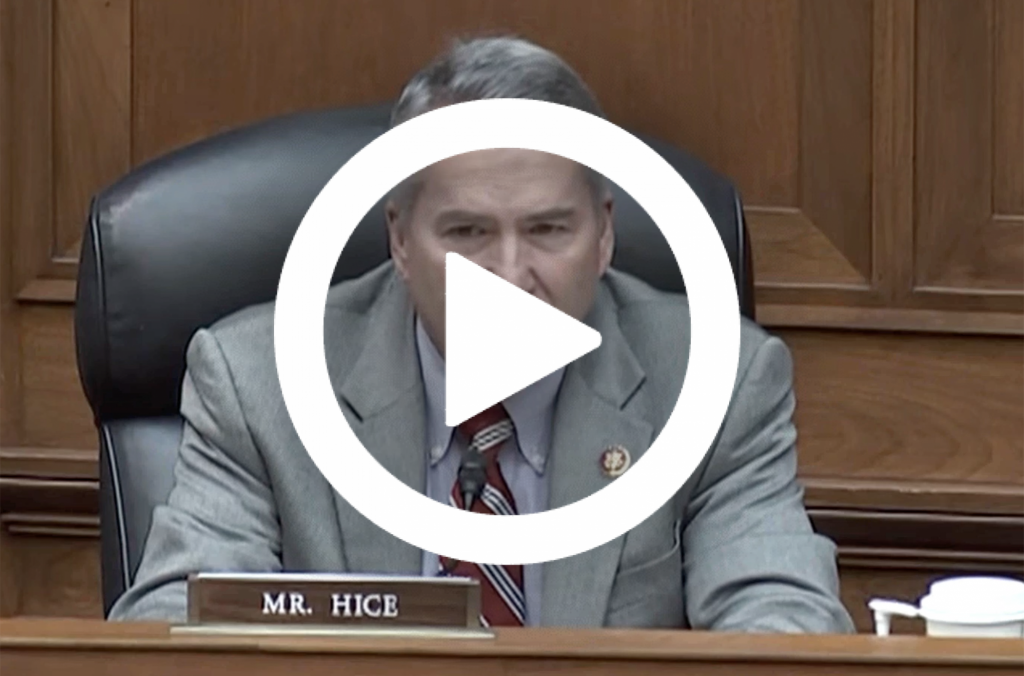Hice: Waste, Fraud, Abuse, and Mismanagement Plague the Washington Metro System
Instead of providing WMATA preferential treatment, we owe it to the American people to fully understand what taxpayers are paying for.
WASHINGTON — Today, the Subcommittee on Government Operations held a hearing titled “Revitalizing WMATA: Getting to a Culture of Excellence.” In his opening statement, Subcommittee Ranking Member Jody Hice (R-Ga.) underscored how from the beginning, the Washington Metro System was envisioned to be special from other transit systems due to its role of serving the nation’s capital. Over the years however, rampant instances of waste, fraud, abuse, and mismanagement have plagued Metro and Ranking Member Hice noted the importance of addressing the issues in order to ensure the service remains reliable well into the future. In particular, he highlighted how the Biden Administration’s lenient telework policies for the federal workforce, rising crime in the region, and D.C.’s unnecessary vaccine mandate have contributed to a dramatic decline in ridership. If WMATA cannot sustain itself as a reliable and safe transit system, Ranking Member Hice concluded taxpayers shouldn’t be providing the service any preferential treatment.
Below are Ranking Member Hice’s remarks as prepared for delivery.
Chairman Connolly, I would like to thank you for calling this hearing.
From the beginning, Metro was envisioned to be “different” from other transit systems due to its role serving our nation’s capital.
Since 1960, Congress has passed legislation specific to the Washington Metro system, to include legislation authorizing and appropriating grants for capital improvements – grants that other transit systems do not get.
Perhaps the main argument for such special treatment was that the Washington Metro was built to transport the federal workforce to and from agencies every day.
You can see this from its construction – stations are located in the vicinity of federal office buildings, and the entire system is designed to bring people to and from the city center.
But what happens when the federal workforce no longer goes to the workplace?
With the Biden Administration’s lenient telework policies, federal workers won’t be coming downtown anymore in anything like the numbers of the past, and nowhere near the amount needed to sustain the Metro system.
While there’s plenty to discuss today – Metro’s safety record, poor service, crime, D.C.’s vaccine mandate and its impact on ridership, the two primary questions I have are these:
- If the federal workforce is no longer reliant on the Metro, why should we consider the Metro a national asset rather than the local subway?
- Once COVID relief funding runs out, how is Metro going to survive?
That’s not to say the other questions are not important.
Overbearing COVID restrictions are not only dampening Metro ridership, but they are also damaging the city’s economy and impacting the ability of Americans to visit the nation’s capital.
Vaccine passports are now required for anyone ages 12 and older to patronize restaurants, bars, gyms, and events in D.C.
This new and burdensome requirement means that local residents, school groups, and tourists who do not wish to disclose their vaccination status will no longer consider coming to D.C., so there’s not even the possibility of them riding Metro.
Crime is another deterrent to riding Metro.
Around the U.S., violent crime rates are up, and Metro is no different.
While the number of criminal incidents has declined – as would be expected given plummeting ridership – the rate of crime has gone up, nearly doubling when considering the proportion of crimes occurring per rider.
But what should we expect from a system that’s decriminalized fare evasion? I have a hard time understanding a “pay-if-you-want-to” approach.
Unfortunately, I could go on.
There are far too many instances of waste, fraud, abuse, and mismanagement with the Washington Metro System to list here.
We owe it to the American people to fully understand what taxpayers are paying for. If WMATA cannot sustain itself as a reliable, safe transit system – and if it no longer serves a special purpose – it should no longer be given special treatment.
In closing, I appreciate the presence of our witnesses and look forward to their testimony.
